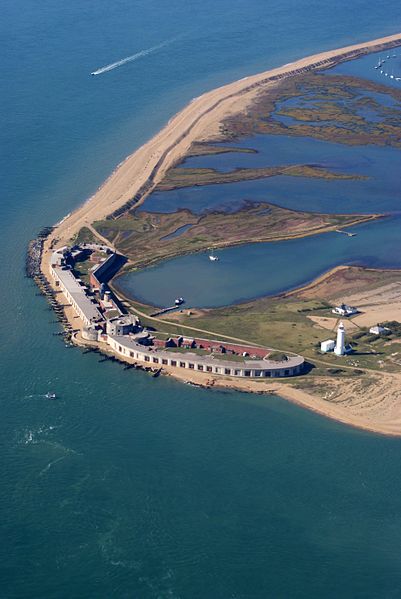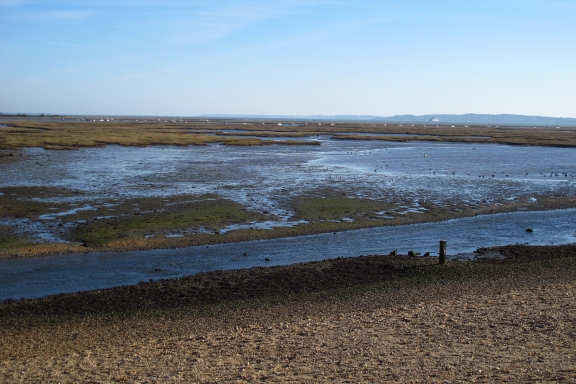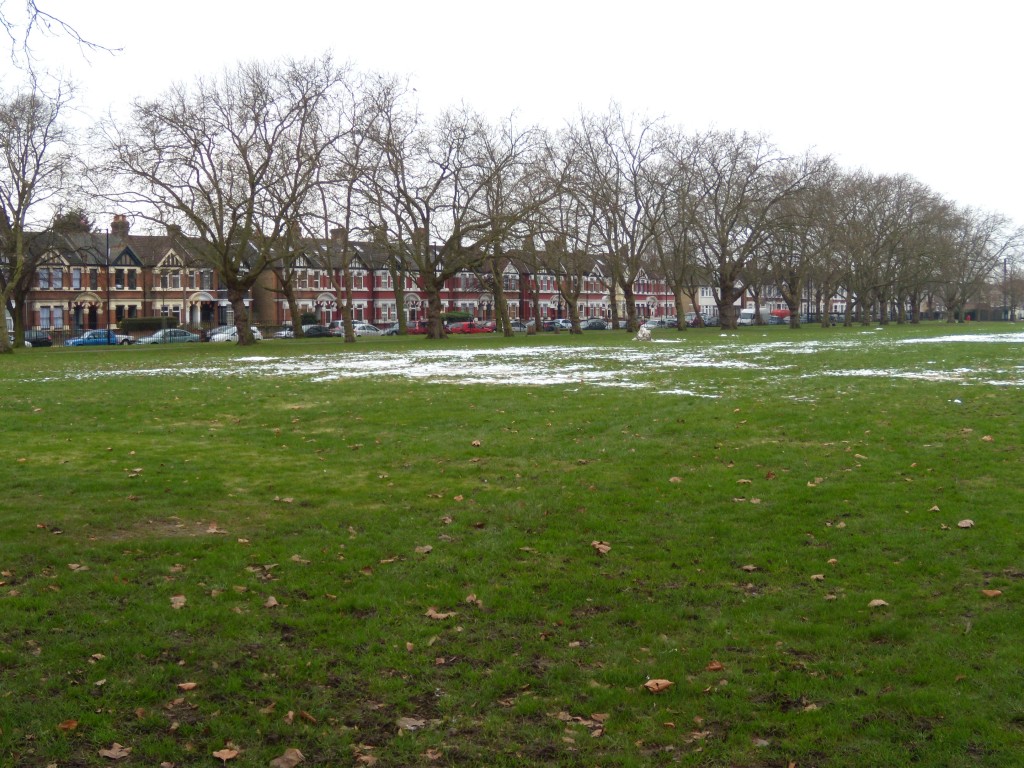
(This year’s Clarke Award nominations – in colour. Photo by Tom Hunter.)
Being a Clarke judge must be hell.
The judges of the 2011 Booker Prize were famously accused of lowering the standards by choosing ‘readability’ over worthiness or innovation. The 2012 Clarke jury were accused of something similar, even though in the case of at least one of the books on their elected shortlist, readable would not be the first adjective to spring to mind. The 2012 Booker lot staged a backlash for literary excellence under Peter Stothard, although it has to be said that in the end what the contest actually came down to was a rather perfunctory two-way battle between Hilary Mantel and Will Self.
Whether this year’s Clarke jury will stage their own backlash in response to what happened last year remains to be seen.
All calls for revolution aside though, the job of picking a shortlist must be bloody difficult. The Clarke’s mission is to select ‘the best science fiction novel of the year’ but how exactly is ‘the best’ to be defined? The fact is, we will all have different answers to that question, and perhaps the true way forward for the Clarke lies in accepting this. My own first criterion for excellence is invariably stylistic – is whichever novel we happen to be discussing well written? But even with my most ingrained prejudices fully intact I can see that such an apparently straightforward question might elicit a wide variety of responses. M. John Harrison’s Empty Space and Kim Stanley Robinson’s 2312 are both well written – but they stand more or less at opposite ends of the spectrum in terms of the intention of their SF. One might define Robinson’s oeuvre as the epitome of what Clarkeian SF is all about: a philosophical-scientific enquiry into the nature or likelihood of certain futures, an examination of the place human beings might occupy in an evolving universe and the consequent setbacks and developments in scientific thought. Robinson’s work is what you’d call real SF – and the quiet and stately elegance of his literary style is proof if proof were needed that this kind of science fiction can also be beautifully written and interesting in matters of form.
It’s precisely this kind of science fiction that M. John Harrison’s Light trilogy seeks to refute. Empty Space has little regard for scientific rigour and attainable futures – except to undermine our perception that these might exist. And yet I believe that Harrison’s book is somehow more keenly searching than Robinson’s, describing with searing accuracy just what it is to be human at the beginning of the 21st century. I also believe it to be a masterpiece of the modern novel. But however passionately I might maintain this, I should never forget that mine is just one opinion among a vast swathe of potential opinions, none of which can ever be an absolute.
Eighty-two books, five sets of competing opinions, an expectant constituency. What must that be like? For, no matter how much the judges may like and respect one another, they will nonetheless be competing. Because books, thank goodness, still generate passion, and each of the judges is duty bound to fight passionately for their own opinion.
As readers, writers and critics we like to cling nobly to the concept of objective judgement; the truth is that when it comes to books there is no such thing. The best we can strive for is a better informed subjectivity. What we argue for, in the end, will come down to that most personally partial of arbiters: gut instinct.
Let it be so.
Going by my gut instinct and according to the annual tradition (come on, admit it, this is better than Christmas) what do I think this year’s Clarke shortlist is going to look like? I’m finding it difficult to call, to be honest. If last year proved anything, it’s that absolutely anything can happen, and with even more books in contention this year that seems even more true. To consider them properly I had first to cut down the numbers. I divided the list of nominations into three separate groups: the books that in my opinion weren’t eligible (the zombie novels, the horror novels, the fantasy novels), the books that I couldn’t see progressing any further (fine entertainment I am sure, but with nothing especially new or relevant or stylish to say about SF now) and then the rest, those that felt to me like actual contenders. There were quite a few on that list, enough to make several credible line-ups of Clarke Award finalists. In view of this it seemed most sensible to come up with two separate shortlists of my own – the one I think the judges might pick, and the six books I would pick myself if it were down to me. Neither of these shortlists can claim to be objective, and both are governed by the huge caveat that unlike the judges I have not read all the books! Not even one tenth of them so far. So my choices are based not on the expertise that only such a complete reading would provide, but on background knowledge, obsessive review- and opinion-watching, readings of authors’ previous books, the careful study of Kindle previews, and – of course – gut instinct.
THE SHORTLIST I THINK THE JUDGES MIGHT PICK
Pure – Julianna Baggott
Dark Eden – Chris Beckett
Intrusion – Ken MacLeod
Jack Glass – Adam Roberts
2312 – Kim Stanley Robinson
Alif the Unseen – G. Willow Wilson
Well, first up is KSR’s 2312 for all the reasons outlined above. It’s a good, solid, safe and worthy heartland SF choice. I’ve picked Ken MacLeod’s Intrusion for much the same reasons: it’s thought-provoking, discussion-inducing core SF. MacLeod’s use of a female protagonist is interesting. The novel doesn’t have the refined elegance of 2312, but it perhaps makes up for that in the seriousness of its intention, its uncompromising commitment to the pursuit of ideas which makes the writing if a little perfunctory then most definitely felt. And I admire that. Then we have Adam Roberts’s Jack Glass. I’m actually a third of the way through reading this. It races merrily along, it’s wilfully idiosyncratic as only Roberts can be. It spins a good yarn in an ironical tone. For me personally I think it’s going to end up being one of those books that go in one ear and out the other. I think it’s too lightweight to make a permanent impression on me, and although I’m finding it enjoyable to read I’m unlikely to want to come back and read it again, which for me is a central criterion of what makes a good book great. But it’s quirky and different from anything else on the list. I can understand why people like it – and why it might end up being a popular choice among the judges.
Chris Beckett’s Dark Eden has received a lot of good press from critics I trust. Here’s a writer who’s worked seriously and very hard in the genre for some years now. He’s clearly very committed to what he’s doing. I have the feeling he deserves to be on this shortlist. I haven’t read the book yet and it worries me that the stylistic gimmick behind it – the decayed language trope already familiar from novels such as Russell Hoban’s Riddley Walker, Will Self’s The Book of Dave, and the central section of David Mitchell’s Cloud Atlas – has been used rather often in the past. But that’s just my prejudice speaking – and all literature is to an extent reworking. Julianna Baggott’s Pure is YA, but once again I’ve seen a lot of positive coverage from good people, and from the sample I’ve read, Pure has appearance of being boldly imaginative and rather well written. I like the tone of it, the feel of it. It would be an adventurous choice for the judges. On to the shortlist it goes.
G. Willow Wilson’s Alif the Unseen is a book I’ve been interested in since I first heard about it mid-way through last year. This is another novel I’ve not gotten around to reading yet, but I most certainly will make time for this one, whether it ends up on the real shortlist or not. I like very much what I have read of it so far. I admire its seriousness, its poetry, its timeliness, its willingness to talk openly about subjects of importance. I hope it gets picked.
THE SHORTLIST I WOULD LOVE TO SEE
Empty Space – M. John Harrison
The Flame Alphabet – Ben Marcus
Kimberley’s Capital Punishment – Richard Milward
The Testimony – James Smythe
Alif the Unseen – G. Willow Wilson
The Method – Juli Zeh
It’s no secret how much I admire M. John Harrison’s Empty Space – indeed I happen to think Harrison is physically incapable of writing a bad sentence. Any shortlist that does not include this book will by my reckoning be forfeiting a serious degree of credibility.
The only book that unites my two shortlists is the G. Willow Wilson. For all the reasons given above, I want it on there. I’ve not read James Smythe’s The Testimony yet, but like Alif the Unseen it’s been on my radar for a good eight months now and I intend to get to it very soon. I like the premise of this book (Smythe’s other submission, The Explorer, sounds great too, but I couldn’t pick both) and I like the form it takes – all those cleverly overlapping short chapters using different voices. I like the writing – plain but in a good way, well fashioned, direct. I like the perceptive things James Smythe has been saying online about what SF means to him and I love his Stephen King columns on the Guardian books blog. His is an intelligent new voice and he deserves to be encouraged.
Juli Zeh’s The Method was a surprise to me. It’s great to see a work in translation gaining a readership (which this book has been doing – see excellent reviews by Maureen Kincaid Speller and Dan Hartland) and I was delighted to see The Method on the (very wonderful) Kitschies shortlist for Red Tentacle. The thing is, I didn’t think I was actually going to like this book much. I’ve read so many dystopias in my time, and the premise of this one – a society where it’s illegal to be ill – sounded a bit contrived to me. But when I started reading the preview I found I loved it. This book is a writer’s book and I warmed to it instantly – the writer addressing the reader, its postmodernism, like the voice of a less vengeful Elfriede Jelinek. I love the way it subverts those same conventions of dystopia I was so concerned about, creating something quite different in their place, alive and fresh. Zeh’s approach is intelligent, knowing and very much her own. I was sorry when the preview ended. I will absolutely be reading this, and more by Juli Zeh as soon as I can.
And then there’s Marcus and Milward. The premise of Ben Marcus’s The Flame Alphabet (children’s talk can kill you) is totally insane but when someone is this good a writer who the hell cares? As with the Zeh, this was a book that I knew was bound to be good but felt I wouldn’t like. And again I found it sneakily proving my own private and prejudiced thesis that it’s not the subject, it’s the writing, the writing, the writing that matters, the how and not the what. Admiration and jealousy and pins-and-needles-making excitement are what take me over now when I think about this novel, and this writer. I don’t think The Flame Alphabet will be on the judges shortlist, not in a million years – like Empty Space it’s the kind of novel that steals SF tropes and forces them to fit its own nefarious purposes – but if it was it would make me whoop and dance about. And that goes double for my final choice, Richard Milward’s Kimberley’s Capital Punishment. I first heard about this novel from Nick Royle, who was reviewing it for the The Independent. It went on my TBR pile for that reason – but as so often happens it got swept aside by books I was down to read for review, books that happened to seem more necessary at the time, etc etc etc and it wasn’t until yesterday that I actually got around to sampling it. I fell in love at first paragraph. It reminded me instantly of Alan Warner’s Morvern Callar, which is a book I worship. Milward clearly belongs to the same guild of inspired visionaries as James Kelman, Janice Galloway, Nicola Barker. This book makes me thankful that there are writers out there still doing stuff like this, still willing (in the face of the mass market’s mass will to mass blandness) to take these kind of risks in writing what they want to, and nothing less. It’s the kind of book I’d have no idea how to write myself, but wish to God I could.
Kimberley’s Capital Punishment will no way win the Clarke, and I’m more than aware that there will be many who will insist with perhaps some justification that my preferred shortlist is so wilfully perverse, so desperately lacking in what they might call ‘proper SF credentials’ that far from presenting a snapshot of where we’re at right now, what it does is collect together a random group of books that have nothing cogent to say about SF whatsoever. I would argue the opposite, that putting your arse on the line is what makes great writing, that daring to be innovative and sincere and just a little bit crazy is what speculative fiction is actually all about. Not an art of the predictable future, but of the wayward mind. But I would have to say that, wouldn’t I? It’s my gut instinct.
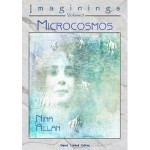 This book, with beautiful cover art (as always) from Ben Baldwin, collects together seven stories written since the publication of my first collection A Thread of Truth in 2007. When Ian Whates of NewCon first approached me about putting this volume together I saw it as a wonderful oppotunity to present an updated snapshot of my short fiction writing. Especially exciting to me is the fact that Microcosmos contains two brand new stories – ‘A.H.’ and ‘Higher Up’, both of which were written within the last twelve months. The volume also contains ‘Chaconne’, a story I wrote for Ex Occidente Press’s Bulgakov-themed anthology The Master in Cafe Morphine. Master was a very limited issue and sold out more or less straight away, so I’m very happy to see ‘Chaconne’ – a story I’m rather fond of about Russia, music and cats – being made available to a wider audience. You can order Microcosmos online here. I’m also looking forward to signing copies at Eastercon, where the book will be officially launched later on this month.
This book, with beautiful cover art (as always) from Ben Baldwin, collects together seven stories written since the publication of my first collection A Thread of Truth in 2007. When Ian Whates of NewCon first approached me about putting this volume together I saw it as a wonderful oppotunity to present an updated snapshot of my short fiction writing. Especially exciting to me is the fact that Microcosmos contains two brand new stories – ‘A.H.’ and ‘Higher Up’, both of which were written within the last twelve months. The volume also contains ‘Chaconne’, a story I wrote for Ex Occidente Press’s Bulgakov-themed anthology The Master in Cafe Morphine. Master was a very limited issue and sold out more or less straight away, so I’m very happy to see ‘Chaconne’ – a story I’m rather fond of about Russia, music and cats – being made available to a wider audience. You can order Microcosmos online here. I’m also looking forward to signing copies at Eastercon, where the book will be officially launched later on this month.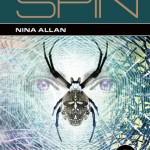 This little book is very close to my heart and I’m really rather excited about it coming out. You can read more about Spin here – there’s been some very generous advance press – and also place your order.
This little book is very close to my heart and I’m really rather excited about it coming out. You can read more about Spin here – there’s been some very generous advance press – and also place your order.